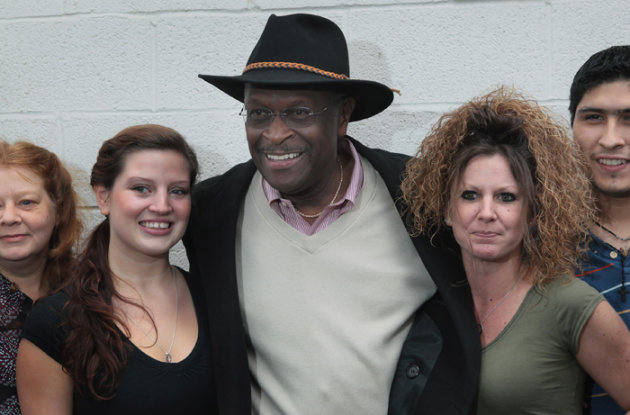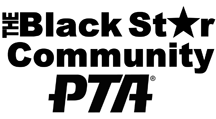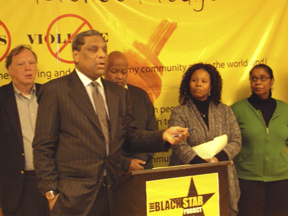TAMPA -- At 14, Shawn Turner-McGee is a convicted felon, arrested last spring for pushing his teacher and grabbing her arms.
He said it was a misunderstanding, one that he wrote a written apology for and served probation.
Last month, Greco Middle School officials suspended the seventh-grader twice for shoving and provoking another boy in the hall.
On Thursday, during his first week back on campus, Shawn was in trouble again following another scuffle and school lockdown.
"I don't want him to be labeled a bad kid,'' said his mother, Christy Turner. "I want him to get his education.''
But it won't be easy. Shawn and other black males are among the most at-risk students in the district and the nation.
Part of the blame may point to strict discipline policies, but progress could be coming through new diversion programs.
And while the gap in graduation rates between black males and boys of other races may be narrowing, it's still an issue that leads to future consequences.
"It's a serious problem,'' said Ross Anderson, a resource teacher and intervention specialist who works with young black males at Van Buren Middle School and Steinbrenner High.
"We are losing a lot of boys.''
Losing them in school, where black male students in Hillsborough County are less likely to graduate than their white peers and more often suspended and expelled.
Then to the street, where they face more incidents of violence and incarceration.
Only 47 percent of America's black males graduate high school, according to a 2010 report by the Schott Foundation, a Cambridge, Mass.-based organization that funds programs to help public schools.
In Florida, state Department of Education records show that 61 percent of black male students graduated high school in 2008.
That number rose two years later to 68 percent with 75 percent of black males in Hillsborough graduating with classmates who started high school the same year.
Compare that to 88 percent of white males matriculating in the county, and it shows the gap between black and white male students is closing, education leaders say.
Adding more teachers and programs that target at-risk students and actively engaging parents seem to help.
But there's still work to be done when it comes to keeping black boys in school.
* * * * *
Black males are twice as likely in Florida to face suspensions or expulsions than white and Hispanic males, a Tampa Tribune analysis found.
In Hillsborough, black males are three times more likely to be suspended from school than white males and five times more likely to be expelled.
A 2010 study by the civil rights advocate Southern Policy Law Center blames zero-tolerance disciplinary policies for the high rates.
Despite two decades of the practice, the policies don't necessarily improve safety or learning, the law center said.
In Hillsborough, which has zero tolerance for incidents like violence against teachers or bringing weapons to school, officials recognize the high rate of suspensions is a problem.
Like other districts across the country, they're searching for solutions.
One may be reducing the number of suspensions by influencing behavior, said Lewis Brinson, the district's assistant superintendent for principals.
But sometimes, a suspension or expulsion is the only way to teach a child no matter the race right from wrong while ensuring other students are safe and able to learn, he said.
Hillsborough uses additional resource teachers to provide afterschool tutoring, extra help in reading and math, and other support.
The district also has embraced academic programs to keep struggling students on track.
Anderson, the resource teacher, and other mentors are just one more way to reach out.
* * * * *
The former Verizon employee left the corporate world to teach, creating Men of Vision in 2005.
He started the program with 21 boys at Sligh Middle School. Last year, 14 of the original members graduated from high school while four got their GED.
The other three boys are foundering, said Anderson, whose program has grown to 125 boys at six schools. "I'm still working with them.''
With other teachers he has trained, Anderson works predominately with black males to motivate them in school and life.
"A lot of these boys feel defeated,'' he said.
Some don't have support at home. They start getting into trouble then assume their teacher or principal doesn't like them.
If they get suspended from school, it can lead to a downward cycle, Anderson said.
Parents have the option of putting their children in an alternative school program that keeps students from being penalized for the missed days and lets them make up assignments.
But not everyone takes advantage of the program, said Anderson, who wants the district to make it mandatory.
Once students get behind in their class work, it sets in motion a downward spiral, he said.
Soon, they're living up to an expectation that they can't or won't succeed.
He tells his boys, "Your school record is the first impression for a teacher or principal.''
If there are discipline referrals, suspensions, arrests, "a red flag goes up,'' he explains. "You get labeled.''
* * * * *
That's what Christy Turner fears is happening to her son.
"He's a good kid,'' the 30-year-old single mom said recently from her Temple Terrace apartment, where she cares for Shawn and his younger brother and sister.
Shawn is on the track team and loves playing baseball. He comes home from school to homework and chores such as washing the dishes and cleaning the bathroom.
He has to make his bed every morning.
Mess up at home or at school, his mom said, and Shawn loses privileges like his cell phone, video games and his me-time.
She tries to teach him right from wrong. It's a lesson Turner, a King High School dropout with two convictions for battery, has struggled with as well.
"It's not a good life,'' she tells her son. "You lose a lot of stuff.''
Shawn gets that, he said last week outside Greco Middle School on Fowler Avenue.
"I want to go somewhere in life,'' he said. "I want to be a lawyer.''
First, he has to survive middle school and that means learning to get along with others - or avoiding them. His mother plans to enroll him in Walton Academy next school year. She hopes the smaller charter school will provide a different atmosphere for her son.
"I've got to stay away from the incidents,'' Shawn reminds himself.
But turning the other cheek can be difficult - especially for teenage boys.
"A lot of times, kids like this, they don't know how to walk away,'' said Brinson, a longtime educator and former principal. "We have to teach them they have a choice.''
Parents need to step up and become a partner with the district.
"It takes all of us,'' Brinson said. "We can't write a kid off.
"If we write a kid off at age 14, what are we saying?''
Senior researcher Buddy Jaudon and reporter Kevin Wiatrowski contributed to this report.














 Teen unemployment was the major focus at a town hall meeting last week, with local teens and elected officials sharing the same platform.
Teen unemployment was the major focus at a town hall meeting last week, with local teens and elected officials sharing the same platform.



















